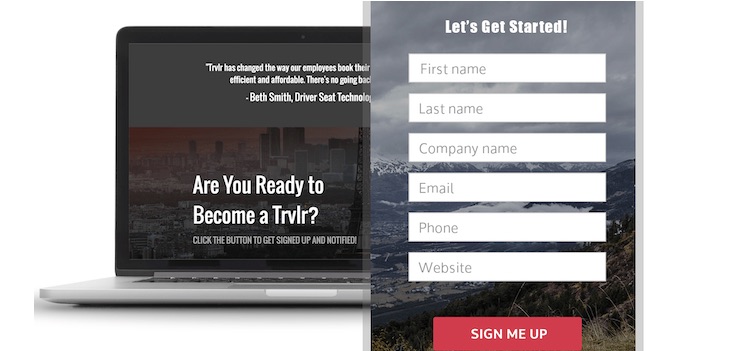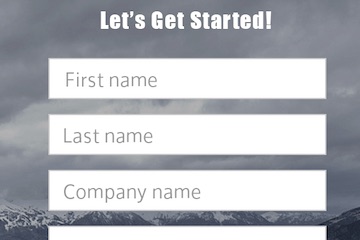
Most email service providers offer easy form builders to entice (and segment) new subscribers. This example is from GetResponse.
While the goal of email marketing has remained constant in the past two decades, the underlying technology has changed. Email service providers are increasingly sophisticated. Every provider serves the same basic need — sending emails — but often in different ways.
The following nine tools are common in modern ESP platforms but are frequently overlooked or underused by ecommerce merchants.
Overlooked Email Tools
Drag-and-drop responsive templates. Creating fresh creative that displays well on mobile devices can take hours of design, coding, and testing. To streamline the process, many ESPs offer easy-to-use template builders for folks with little to no HTML knowledge. The templates work best for sites or brands that are flexible in the appearance of their campaigns and can alter the creative to fit, if necessary. Most providers — Constant Contact, Zoho Campaigns, many more — feature easy email template builders.
Automation. Many ESPs have rebranded as “marketing automation platforms” to offer more than sending email. Thus most providers offer automation capabilities by default. This can include auto-responses that are triggered by behavior, demographics, or events. Review the automation options with your ESP. It could spark ideas that add value to your program. Campaigner and MailUp (among others) offer a slew of automation options.
Landing pages. Custom landing pages for specific email promotions create the most conversions, versus sending an email reader to a home page or product page. But creating new landing pages for each email deployment can be daunting. Luckily, ESPs such as IBM Watson and SendinBlue are among those that offer landing page builders.
A/B testing. Every email should be tested and optimized. Small nuances, such as wording changes or relocating calls-to-action, can increase conversion rates. Use your provider’s automated A/B testing functionality to measure, tweak, and improve every deployment. Oracle NetSuite (Bronto), Pardot, and Act-On feature impressive A/B testing capabilities.
Integration with other platforms. Most ESPs integrate with other ecommerce-related platforms. For example, MailChimp offers dozens of integrations — including social media networks, survey providers, and payment processors. Review your provider’s integration options to streamline and automate workflow.
Sign-up forms. Growing the number of email subscribers is typically a top priority for merchants. A custom form to capture and auto-load subscribers into a master file can help. Most ESPs offer this functionality. The forms can include promotions such as contests, ebooks, and coupons to entice subscribers. GetResponse, for example, offers an easy-to-use form builder.
Analytics and reporting. ESPs offer basic open and click tracking, advanced metrics such as geolocation and devices, and integrations with Google Analytics and similar platforms. Don’t skip the reporting functions of your ESP. In my experience, there is usually interesting and helpful data to fine-tune your campaigns. For example, HubSpot offers predictive lead scoring models.
Segmentation. The more relevant the email messages, the better the conversions. Look for easy ways to segment your file, and then create content for each segment. Most providers offer easy ways to divvy up your list based on subscriber activity.
Content management. Email promotions, templates, and photos can quickly become disorganized. Hunting for a Christmas offer from three years ago could quickly kill an afternoon (as I’ve learned). Many ESPs now include systems to store content from past campaigns, such as photos, for future templates. Take advantage of this feature to stay organized.







